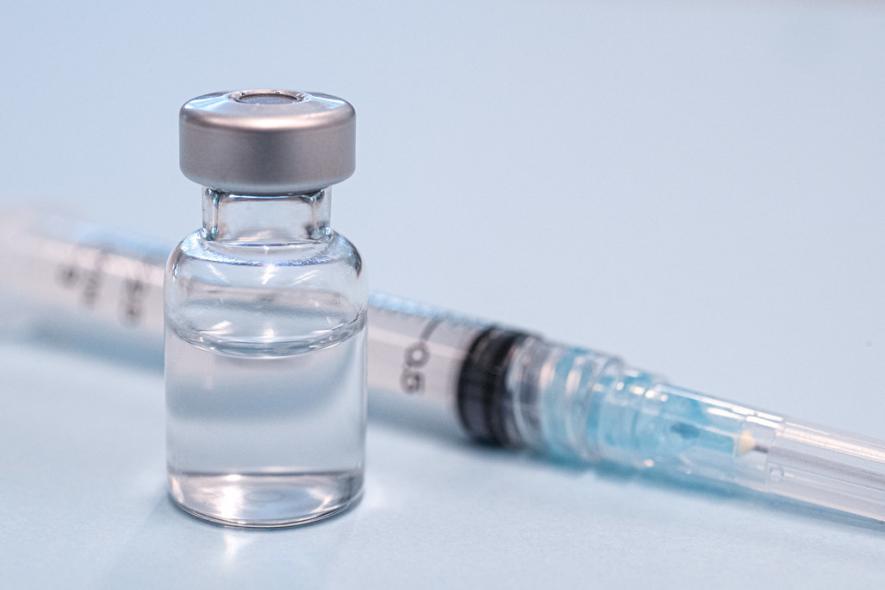COVID-19: Antiviral Drug Found Effective in Shortening the Time Patient Tests Positive After Infection

Representational Image. Image Courtesy: Flickr
For the first time, an antiviral drug has shown effectiveness in reducing the time taken for a patient to test negative after contracting the COVID-19 infection. This implies that if an infected patient tests positive for the presence of the coronavirus for, say, 14 days, then after taking the antiviral drug, the same patient will test negative a few days before. The drug has been found effective amongst patients having moderate to mild symptoms.
The antiviral drug is known as the ensitrelvir and has been manufactured by Japanese drug manufacturer Shionogi in Osaka, Japan. The manufacturer even claims that the drug is potentially effective against long COVID (long COVID signifies the existence of symptoms after weeks, months or even years after the infection). However, scientists are still sceptical about ensitrelvir’s ability to prevent long COVID. The trial results had been presented at the Conference on Retroviruses and Opportunistic Infections, USA. The trial results are not yet peer reviewed.
It is worth mentioning that paxlovid and molnupiravir are other antiviral drugs that have been used widely in the treatment of people who are at high risk. On the other hand, ensitrelvir was tested on patients irrespective of their risks of developing disease severity. This has implications for patients who are at comparatively lower risk. In this context, ensitrelvir can be thought of as having the potential to cure patients at lower risk, that too by reducing the number of days they remain positive.
The clinical trial of ensitrelvir comprised 1,200 people. Participants who received a 125-milligram pill of ensitrelvir were found to have recovered at least a day sooner than those who were in the control group (the control group consists of the people who did not take the 125-milligram pills). Moreover, those who received the drug could recover early from five specific symptoms, namely stuffy nose, sore throat, cough, fever, and tiredness.
The trial results also showed that patients taking a dose of 125 mg ensitrelvir pill tested negative at least 29 hours earlier than those who took a placebo (A placebo is anything that has no medicinal chemical or active chemical, it can be anything like a sugar pill, saline water etc.). The manufacturer Shionogi claims that it was the first time which showed statistically significant results regarding the shortening of time for a negative test result.
IS IT REALLY EFFECTIVE AGAINST LONG COVID?
The manufacturer claims that ensitrelvir may be effective against long COVID as well. This claim comes from the trial result over which many scientists have shown apprehensions. In the trial, a group of participants were asked about the symptoms they had three to six months after they enrolled in the trial and also during the period of their acute infection. The trial defined people as having long COVID who reported suffering two or more symptoms during this period at least twice in a row. It has been claimed, based on the trial, that people who took the antiviral have a 14% chance of developing long COVID and on the other hand, those without the antiviral have a 26% chance of developing long COVID. On this basis, Shionogi concluded that ensitrelvir could reduce the chance of developing long COVID.
Experts opine that the trial was not specifically intended to find out the drug’s effectiveness against long COVID. Commenting on the trial design and the tall claims, Eric Topol, director of the Scripps Research Translational Institute in San Diego, California said in a statement: “It is unclear whether Shionogi’s definition of long COVID was determined before the trial began. Because this was an exploratory phase of the study, it’s not possible to make any strong conclusions.”
Simon Portsmouth, head of the clinical development of Shionogi in New Jersey, addressing the concerns raised by scientists, commented that as long COVID was less clearly defined in the past, especially when the trial began, the company could not reveal specific plans to study long COVID in time. Only recently, it was found that the antiviral paxlovid may be effective in reducing the chances of long COVID.
Another interesting aspect of long COVID is that there is no wide consensus on whether the coronavirus can actually cause long COVID. “It’s entirely possible that the virus has nothing to do with long COVID. Long COVID might be caused, for example, by the immune response to the virus,” commented Edward Mills, a health researcher at McMaster University in Hamilton, Canada, in a statement.
Get the latest reports & analysis with people's perspective on Protests, movements & deep analytical videos, discussions of the current affairs in your Telegram app. Subscribe to NewsClick's Telegram channel & get Real-Time updates on stories, as they get published on our website.
























